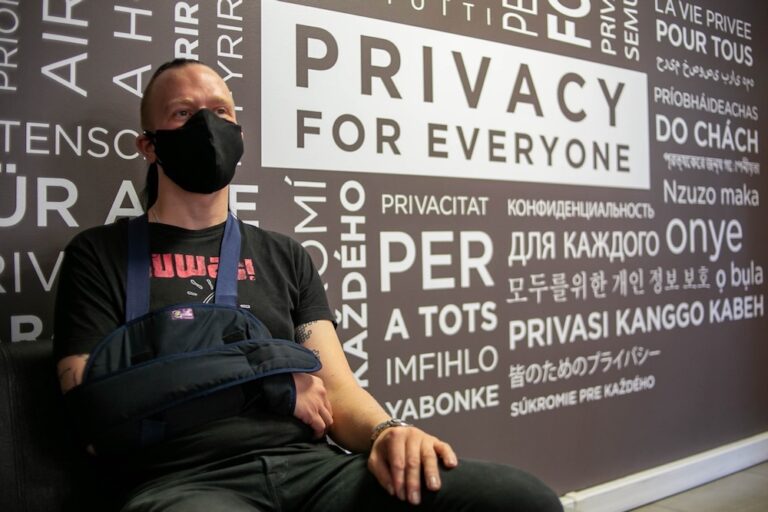President Rafael Correa announced that during his next period in office the State will subsidize small "non-profit" media outlets, but the measure will not extend to the large media companies, which he says "are drowning in cash".
(Fundamedios/IFEX) – 24 January 2013 – On 21 January 2013, the president and candidate for reelection, Rafael Correa, announced that during his next period in office the State will subsidize small “non-profit” media outlets as a measure to provide an increase in wages to journalists, whether they are accredited or not, whose salary was set by the Executive at the end of last year.
In an interview on Radio Majestad, Correa said he had “requested the Communication Department prepare a contingency plan to provide support from the government to small stations with no savings capacity, that are non-profit, and which cannot pay higher wages, so that the State can participate by subsidizing those wages”. This subsidy, however, will not apply to the mainstream media because, according to the candidate for the ruling party Alianza PAIS, “the big media companies are drowning in cash and they have always exploited their workers”.
With the latest government-ordered increase, journalists’ salary rose by at least 58%. They went from receiving nearly $345 in 2011, to $817 for qualified journalists in 2013. This has led to the dismissal of media professionals and a fear of possible job cuts in the media.
According to an article published by the State newspaper El Telégrafo, Radio Colón fired eight employees over the telephone, while the newspaper La Hora let go three of its reporters from the Economy, Society and City sections on 26 December and the online newspaper Ecuadorenvivo also fired a journalist.
Fundamedios contacted Luis Vivanco, La Hora‘s news editor, who admitted that there had been layoffs and stated that “painful as it was, we had to do without three contributors to protect the jobs of hundreds” and stated that the layoffs were related to the measure which, he believes, does not affect media outlets, but rather journalists themselves.
Meanwhile, Alfonso Pérez of Ecuadorenvivo also confirmed that the sacking of one of its journalists was related to the increase in wages and called the measure “perverse”, because, in his opinion, it is a political move aimed at creating an unpleasant working environment within the media and harming media workers, for whom there will be fewer jobs.
In the case of Radio Colón, its representative, Glenda Silva, told Fundamedios that it is not true they have fired eight workers, but just two: one in January of this year and another one in October of last year. She also stated that these dismissals were not related to the wage increase announcement. “I do not understand where they got that”, she emphasized.
Both the salary increase and the subsidy announcement have created concern among organizations such as the Journalists Association of Pichincha. Susana Piedra, president of the organization, told Fundamedios that the wage increase was a unilateral decision and that it represents a double-edged sword because not every media outlet has the means with which to meet this new demand.
Piedra said that the subsidy announced by Correa is unclear and believes that it will only benefit community-based media that are already sponsored by the government, “but nothing is said of other media outlets, which employ the vast majority of journalists and can now take advantage of the law to hire unaccredited professionals to pay them less”.
Piedra added that subsidies are not the solution and, in this case, what should be done would be to fairly distribute official advertising in the media so that they all have an adequate budget.
Lucía Lemos, dean of the Faculty of the Catholic University of Quito, is also concerned by the Executive’s proposal because she believes it will take away freedom and undermine the independence of journalists to report what happens regarding politics, the economy and society.
President Correa’s announcement was made during the campaign period for the presidential and legislative elections of 17 February.
The Inter-American Court has warned that indirect violations of the right to free expression include all State actions that are intended to prevent or hinder the possibility that the media can disseminate information or opinions, while the Inter-American Commission has warned that the discriminatory allocation of public resources as punishment or reward to certain media outlets, in order to influence the information they provide, is a violation of the right to free expression.
In this sense, a direct subsidy from the State to certain journalists or media outlets could be interpreted as an indirect restriction. If we take into account that President Rafael Correa has repeatedly attempted to link the private media to the opposition, this announcement could also have clearly discriminatory motives against media that are critical of the government.


